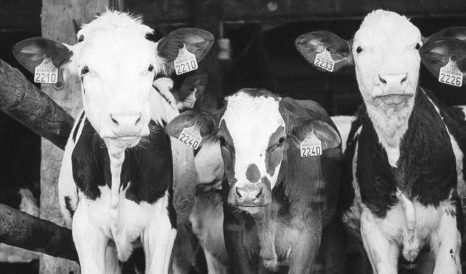The meat debate
A new report shows that reducing our meat consumption is a vital aspect in tackling global warming.
The UN’s Intergovernmental Panel on Climate Change – IPCC – has released a special report on agriculture and human diet in the context of global warming.

On 8th August, the IPCC released a summary of the report, which was compiled by more than 100 experts from around the world. The researchers report that, although the burning of fossil fuels has garnered the most attention in the climate change debate, it is land-use issues (particularly agriculture and forestry) that produce ¼ of the world’s heat-trapping gases.
Most of us are aware that meat farming – particularly beef farming – is the bête noir of climate-damaging agriculture. Not only is it the economic driver for the destruction of planet-cooling rainforests, but the methane gas produced by cattle is a major greenhouse gas. Industrialised farming is also responsible for desertification and soil pollution – putting greater stress on our ability to feed a growing global population.
The projected figures indicate that turning to a plant-based diet will reduce emissions – the report suggests that if the world population stopped eating meat, global CO2 emissions (currently at 37 billion tonnes p.a.) will reduce by 8 billion tonnes. In Nature magazine’s article, Quirin Shiermeier says that the report’s authors are not insisting on a change of diet, but they are stating that a massive reduction in meat consumption, particularly in developed countries, will be beneficial to both climate and human health.
The report presents a confident view, says Shiermeier, that a shift to balanced diets featuring plant-based and sustainably produced meat and fish is the ideal. By 2050, says the report, these dietary changes could free up several million square kilometres of land – enabling planet-cooling reforestation – and dramatically reduce greenhouse emissions.
Whether or not these considerations will be adopted remains to be seen. The legislation required to control the consumption and production of meat would have to be implemented around the world. The UN climate summit in New York next month (September) will be addressing the IPCC’s latest findings as one of the most pressing issues to resolving the climate crisis, in the hope that a landmark agreement will change our consumption for the good of the planet.
